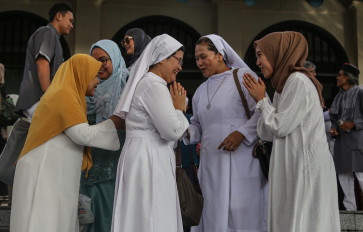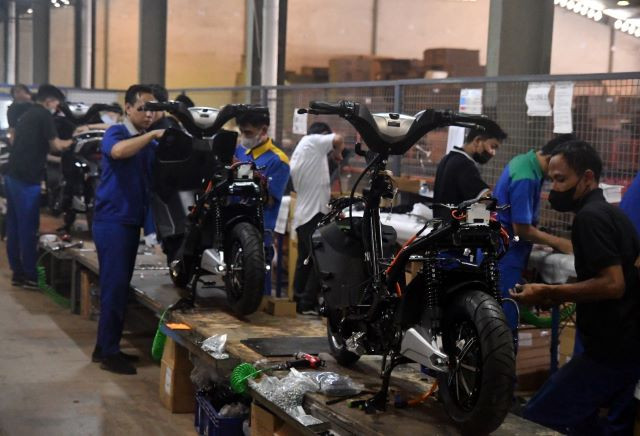Uncertainty still clouds formation of coast guard
Uncertainty is still hanging over the establishment of an independent coast guard, as the issuance of the regulation that would be used as its legal basis may be further delayed
Change text size
Gift Premium Articles
to Anyone

U
ncertainty is still hanging over the establishment of an independent coast guard, as the issuance of the regulation that would be used as its legal basis may be further delayed.
According to Law No. 17/2008 on shipping, Indonesia should have had an independent sea and coast guard by 2011. But, due to the slow process in drafting the regulation and its final approval, the body was not established according to schedule, according to the Transportation Ministry, which is tasked with overseeing the drafting of the regulation.
The ministry’s director general for sea transportation, Leon Muhammad said in Jakarta last week the drafting of the regulation had been slow as several sections of the regulation had to be changed due to resistance from a number of institutions involved in maintaining maritime safety and security.
Leon said that his ministry had finally completed the drafting of the law after working on it for more than two years, and had submitted the draft regulation to the state secretary in mid-2012 to receive final approval from the President.
Leon added, however, that the draft was still pending presidential approval because the Office of the Coordinating Political, Legal and Security Affairs Minister could not agree on certain points in the draft regulation.
“We should have already formed the coast guard in 2011, but there are other institutions from whom we need to gain approval. It is taking quite a time to convince some of them that the establishment of the body will not diminish their authority,” Leon told The Jakarta Post on Tuesday.
The 2008 Shipping Law mandates that the government form an Indonesian Sea and Coast Guard as a consequence of Indonesia’s ratification of the 1982 United Nations Convention on the Law of the Sea (UNCLOS).
The draft states that the Indonesian Sea and Coast Guard, which would take the form of a civilian institution, will be answerable to the President via the Transportation Minister with tasks including ensuring safety and security at sea and carrying out law enforcement. The body will operate independently and has no authority links with Navy operations.
At present, responsibility for maritime security lies with several ministries and institutions, such as the Maritime Affairs and Fisheries Ministry, the Indonesian Navy, the Finance Ministry’s Customs and Excise Directorate General, the Transportation Ministry’s Sea and Coastguard Directorate, and the National Water Police.
The Coordinating Agency for Maritime Security (Bakorkamla) — a body under the Office of the Coordinating Political, Legal and Security Affairs Minister — possesses the authority to coordinate existing institutions via a 2005 presidential regulation, but only at a “planning level” and it cannot give directives in the field.
This complicated situation has not only created overlapping functions among the institutions but has also raised concern among stakeholders over maritime safety.
Indonesian Shipowners’ Association (INSA) chairwoman Carmelita Hatoto said that the association was concerned about the late establishment of the body, adding that only a legitimate coast guard could help them eliminate unofficial payments made to these institutions.
Shipping companies were reported to have paid Rp 5.5 trillion (US$568.35 million) in 2011 in allegedly illegal levies imposed by officials from a host of state security and law-enforcement agencies.
Carmelita said their modus operandi were to stop ships, pretend to check necessary documents and, eventually, allegedly demand payments in the name of security and safety. (aml)









